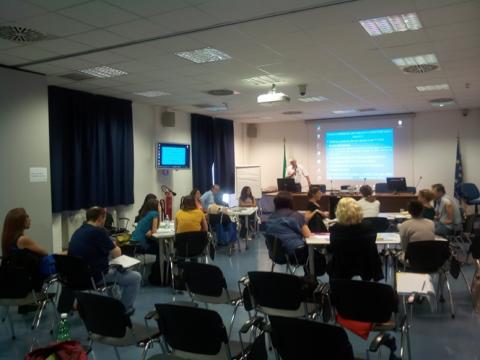Third ASSET Summer School: a fact, lots of news

As reported in the ASSET Strategic plan, the three Summer Schools on Science in Society related issues in Pandemics (2015, 2016, 2017) pose the main challenge of the collaborative project overall that is dealing with the intersectoral approach required by the management of Public Health Emergencies of International Concern (PHEIC), like epidemics and pandemics. Therefore, by establishing an interactive learning setting for researchers and practitioners in the field of Science in Society (SiS) related issues in Pandemics, the ASSET Summer School focused on: governance of pandemics; unsolved scientific questions about epidemics and pandemics; crisis participatory governance; ethical, legal and societal implications of pandemics; gender pattern – vulnerability; and (issues related to) intentionally caused outbreaks.
From May 30 to June 1, 2017, the Third ASSET Summer School on Science in Society related issues in Pandemics was held at the National Centre for Disease Prevention and Health Promotion of the Italian Institute of Public Health in Rome. It is a (matter of) fact.
In those three days, both the deductive and the inductive methods were applied to discuss on PHEIC management, according to a multidisciplinary perspective. A sequence of several case studies was analysed and contents ranged from public health to social science and communication. Thematic focuses were: vaccination and current vaccine hesitancy; an intentionally caused outbreak of botulism; Zika virus and gender related issues; risk assessment applied to Yellow Fever and the impact of risk communication on Ebola Virus Disease spreading in Western Africa; lay public involvement in case of major outbreak occurrence and study of people reaction on social media against recent terroristic attacks. Indeed, it is a news.
The third ASSET course was comparable to a varied stage of actors holding different professional roles and backgrounds: general practitioners, public health officers, researchers, medical students and PhD candidates, biostatisticians, journalists, sociologists. They represented public research institutes as well as private companies. And this is really a (good) news.
Thirty people gathered in Rome in these days, coming from Lyon (France), Haifa (Israel), Copenhagen (Denmark), Dublin (Ireland), Athens (Greece), Geneva (Switzerland), Bucharest (Romania), Sofia (Bulgaria), Manchester (UK), Abuja (Nigeria), Chișinău (Moldova), Milan and Rome (Italy). Then, the cross-cultural environment recalled by the pay-off associated to the ASSET Summer School was actually well represented. It is a (great) news.
An interactive approach was fully developed at the 2017 ASSET Summer School: people worked in groups all over the learning units and attendants also presented their own projects, activities or experience developed concerning SiS related issues in the management of major infectious disease outbreaks. In this way, it was possible to enjoy a beneficial sharing of expertise and a fruitful exchange fostering Mutual Learning among differently grounded professionals. In the end, another news.
It is right to state that the third ASSET Summer School was a fact, but also brought a lot of news.
